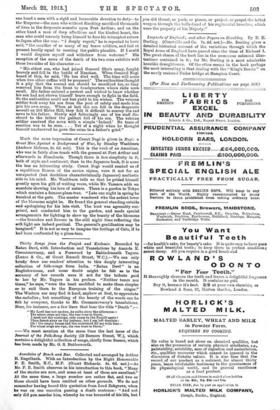Much the same impression of Count Nogi is given in
Nogi: a Great Man Against a Background of War, by Stanley Washburn (Andrew Melrose, 3s. 6d. net). This is the work of an American, who was in fairly close touch with the general at Port Arthur and afterwards in Manchuria. Though there is less simplicity in it, both of style and sentiment, than in the Japanese book, it is none the less an interesting study. Count Nogi would remind us of a republican Roman of the armies regime, were it not for an unexpected (but doubtless characteristically Japanese) aesthetic side to his mind. Mr. Washburn tells us that he prided himself greatly upon his gift of writing verse, while Mr. Tamara adds an anecdote showing his love of nature. There is a garden in Tokyo which contains a famous plum-tree. "Late one night in spring he knocked at the gate. The master wondered who the ardent lover of the blossoms might be. He found the general standing outside and apologising for his late visit. The host was agreeably sur- prised, and conducted him to the garden, and made special arrangements for lighting to show up the beauty of the blossoms —the branches and flowers in the still night time reflecting the soft light are indeed poetical. The general's gratification may be imagined." It is not so easy to 'imagine the feelings of Cato, if he had been confronted by a plum-tree.














































 Previous page
Previous page